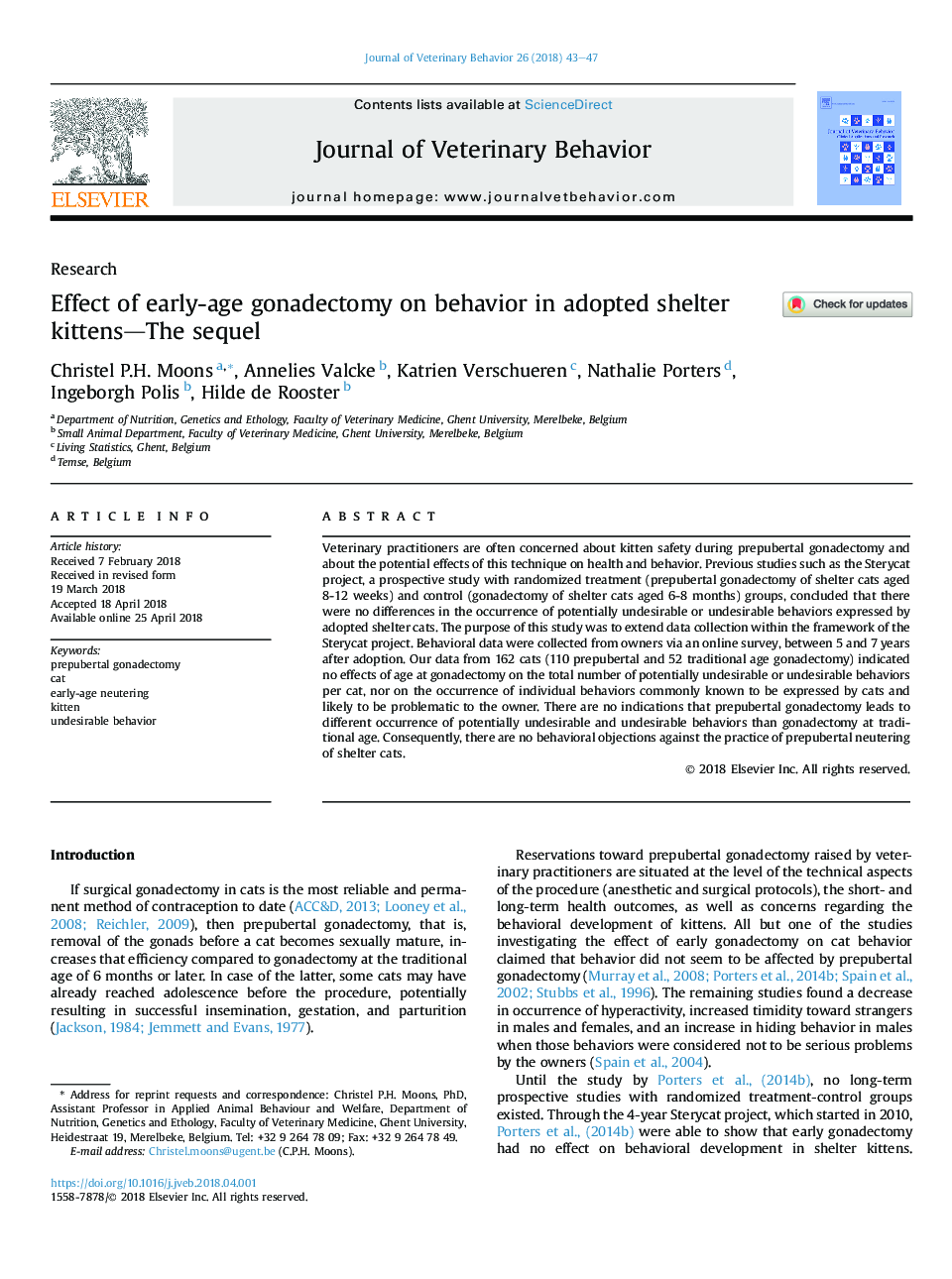| Article ID | Journal | Published Year | Pages | File Type |
|---|---|---|---|---|
| 8483999 | Journal of Veterinary Behavior: Clinical Applications and Research | 2018 | 5 Pages |
Abstract
Veterinary practitioners are often concerned about kitten safety during prepubertal gonadectomy and about the potential effects of this technique on health and behavior. Previous studies such as the Sterycat project, a prospective study with randomized treatment (prepubertal gonadectomy of shelter cats aged 8-12 weeks) and control (gonadectomy of shelter cats aged 6-8 months) groups, concluded that there were no differences in the occurrence of potentially undesirable or undesirable behaviors expressed by adopted shelter cats. The purpose of this study was to extend data collection within the framework of the Sterycat project. Behavioral data were collected from owners via an online survey, between 5 and 7 years after adoption. Our data from 162 cats (110 prepubertal and 52 traditional age gonadectomy) indicated no effects of age at gonadectomy on the total number of potentially undesirable or undesirable behaviors per cat, nor on the occurrence of individual behaviors commonly known to be expressed by cats and likely to be problematic to the owner. There are no indications that prepubertal gonadectomy leads to different occurrence of potentially undesirable and undesirable behaviors than gonadectomy at traditional age. Consequently, there are no behavioral objections against the practice of prepubertal neutering of shelter cats.
Keywords
Related Topics
Life Sciences
Agricultural and Biological Sciences
Animal Science and Zoology
Authors
Christel P.H. Moons, Annelies Valcke, Katrien Verschueren, Nathalie Porters, Ingeborgh Polis, Hilde de Rooster,
